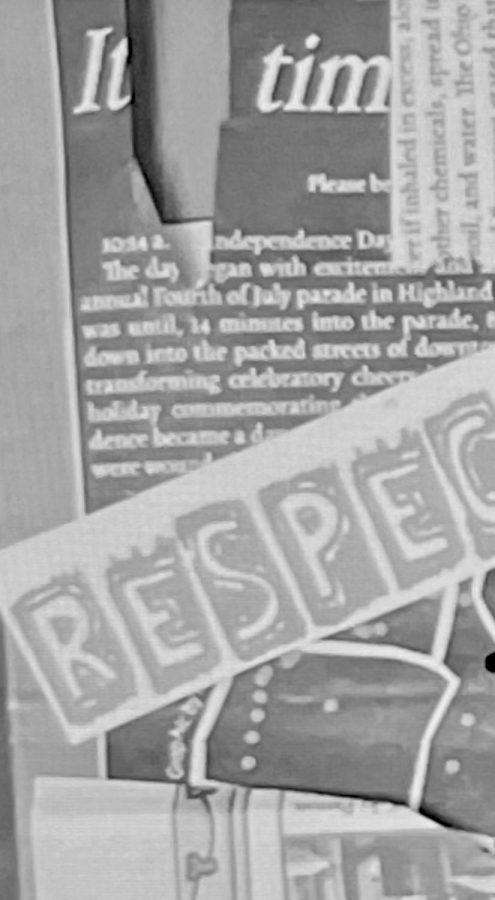A new age of journalism
April 21, 2023
Each day, thousands of television stations broadcast current events for people to watch on the hour, organizations post articles and updates through social media sites such as Twitter, and podcasts are aired daily on apps like Spotify and Apple Music. Journalism, a term that was once associated with the penny press and print articles, has evolved into an infinite source of information.
Along with its evolution comes concerns. Social media has opened new doors for the spread of fake news and the political integrity of news sources is constantly under fire. While social media and other digital news sources may reward fake news and false narratives with views and clicks, journalist Jeremy Scahill expressed the importance of maintaining the values of integrity journalism was built upon.
“Journalism is constantly evolving, the internet is just one example of that, but we have to be careful when getting information solely from social media and online,” Scahill said. “We can’t forget the importance of values in traditional journalism.”
The Oracle Editorial Board urges the South community to recognize journalism’s evolution and acknowledge the varying differences between media platforms and how they can alter one’s perception of current events.
Observing social media’s effects on journalism, the University of Southern California released a study identifying why people find fake news and sensationalism appealing. The researchers found that because of the way that social media rewards posts that get shares, it inclines social media users and news sources to share stories that will get a lot of clicks instead of stories with authentic journalism.
“Once habits form, information sharing is automatically activated by cues on the platform without users considering critical response outcomes, such as spreading misinformation,” the researchers said.
Navigating through authentic and inauthentic news sources can seem daunting, because of this, it is essential to gain an understanding of how journalism works with education being the most accessible way to do so. French Teacher Scott Field majored in journalism at Indiana University and values his education as it provided him with the skills necessary to sift through dishonest journalism.
“[Getting a degree in journalism] made me aware of what good writing was,” Scott said. “It made me very aware of what good sources [are].”
The Oracle Editorial Board implores the South community to understand the dangers of inauthentic journalism and educate themselves on navigating through it.
South provides students with many opportunities to get up-to-date news and be involved in the production of journalism. Whether it is through The Oracle, South’s radio: WGBK, or South’s yearbook: The Etruscan, there are many ways for students to experience journalism firsthand. Additionally, working on student publications can be a very rewarding experience, Brenda Field yearbook adviser and English teacher said.
“ There’s a lot of care and thought and effort that has to go into it, because [yearbook is] publishing something for the student bodies consumption,” Brenda said. “The payoff is so much more than the frustrations that you might deal with from time to time. It’s definitely a super rewarding thing. There’s nothing quite like being able to produce something with a group of people.”
With many outlets of journalism present today, Courtney Cronin, Chicago Bears ESPN Reporter, explained how easy it is to access information.
“[Now] you [have] breaking stories that would pop up online immediately,” Cronin said. “You [do not] have to wait till the next day’s paper to read stuff. [That is] the way I [have] seen journalism change [to this] instantaneous nature of information now [that] is so much more readily available than how we used to consume it.”
The Oracle Editorial Board urges the South community to acknowledge the varying differences between media platforms and how they can alter one’s perception of current events.
Along with Scahill, Radio adviser Dr. Daniel Oswald believes that real journalism comes from intentional storytelling and not always from what you read on social media.
“Journalism is the intentional telling of select stories in a clear and concise way, to a particular community of listeners or viewers,” Oswald said. “What people do with cell phones, this ubiquitous documenting tool, is not necessarily journalism.”
With the greater influence that social media has on today’s society, Oswald explained that it has played a role in the integrity of journalism today.
“Anybody now, because of social media can express their opinion and document what’s happening in [their] lives and share those to a larger audience and, in essence, broadcast them,” Oswald said. “ I think people mistakenly refer to that as journalism.”
Even with various social media platforms, Brenda believes that there will always be the need for real journalists to share the true facts and help society become aware of present issues.
“We need people who are going to speak [the] truth [and] we need people who are going to take the time to find issues and problems where they exist and bring light to them,” Brenda said. “Journalism is so powerful and important and [even though] the medium isn’t always going to look the same, I think the importance of it is always going to be there.”












